
Stress occurs at all levels of life. It was traditionally implied that health was merely the absence of disease.The medical community has finally acknowledged that stress is not just in the mind, but in the body and can actually be measured. Controlling stress in your life is the most important measure in optimizing your health. Stress is an individual experience. How well we adapt, largely depends upon the health of our adrenal glands, the main component in surviving long periods of stress. Nutrient deficiencies can lead to physical and physiological stress while inversely, stress can deplete nutrients.
Today, strong evidence shows that a stressful lifestyle and increased exposure to environmental hazards are both directly linked to premature aging, heart disease, memory problems, obesity, hypertension, edema, hormone and sugar imbalances, impaired immune defense, organ and glandular weaknesses.
Consequences of Acute and Chronic Stress
Stress can be ubiquitous in that we don’t all respond to it in the same way and it isn’t always bad. Acute stress may be brief in duration although intense in symptoms. Chronic stress is defined as unresolved circumstances persisting over extended periods of time.
Brain
Acute stress affects the brain by increasing alertness and decreasing the perception of pain.
Chronic stress effects on the brain can result in headaches, impaired memory, depression and disturbed sleep patterns. Prolonged stress also depletes certain neurotransmitters in the brain which can trigger carbohydrate cravings and eating binges.
Adrenal Glands
Acute stress over stimulates the adrenal glands kicking in the “fight or flight” response. Normally this would be fine if confronted by a predator but does not help if you’re late for an appointment.
Chronic stress raises cortisol levels, dampening response to acute stress. High cortisol levels cause increased insulin release, weight gain, inflammation, and a chain reaction that impacts several other organs and systems in particular the thyroid and adrenal glands.
Immune System
The quick acting acute response of our natural immunity prompts the immune system to ready itself for infections from external dangers such as bites, scrapes and punctures.
Chronic stress that seems beyond a persons control or seems endless resulted in suppressed functioning in almost all measures of the immune system.
Reproductive Organs
Sex and stress are physically entwined. Acute stress temporarily suppresses functioning in the reproductive system.
The risk of miscarriage and increased infertility are associated with chronic stress. An elevated cortisol level depletes the reserves of the hormone DHEA, involved in the production of sex hormones. Consequently, as sex hormones reduce, the libido begins to decline.
Circulatory System
Stress has a substantial affect on the circulatory system which includes the heart, arteries and veins.
Acute stress increases the heart rate.
Chronic stress affects the circulatory system by elevating blood pressure and blood flow to the muscles, putting one at risk of cardio vascular disease or stroke. Prolonged stress impedes the oxygenation process necessary to keep all the other organs and the body as a whole functioning normally.
Oxidative Stress
Oxidative stress is a normal byproduct of acute and chronic stress. Cortisol has been dubbed the “age-accelerating hormone”. It increases internal generations of free radials, altering cells at a molecular level. Oxidative stress is a factor in the following major conditions: Aging, Alzheimer’s disease, Arthritis, Cancer, Cardiovascular disease, Depressed Immune Function, Endocrine Dysfunction, Insulin Resistance and Diabetes, Macular Degeneration, Neurological dysfunction/Parkinson’s disease and Obesity.
Supplement Support
Key factors to ward off oxidative stress are a healthy diet and sufficient levels of antioxidant protective nutrients. To achieve adequate protection, eat a plant rich diet or supplements to include the following antioxidants; vitamins A, C, E, selenium, alpha lipoic acid, coenzyme Q10 and glutathione. Nutrients consumed by the body in excess when stressed include B5 (pantothentic acid), vitamin A, C, E, selenium, hydrochloric acid, iron, zinc, calcium and magnesium.
Stress Management Though Diet and Supplement Support
Acute and chronic stress generates copious amounts of free radials from oxidative stress. Incorporating a diet rich in antioxidants will control oxygen damage and support you through the short term stressful periods so that chronic stress doesn’t develop.
Eating well and supplementing your diet with appropriate nutrients will enhance your coping skills with the unavoidable day to day stress that has become apparent in today’s lifestyle. Unfortunately, during periods of high stress, most people’s diets fall short. For this reason, supplementing with a high quality multiple vitamin and mineral formula with higher levels of natural carotenoids is essential.
Supplemental Protocol for Chronic Stress
Overview of Antioxidants
The major groups of antioxidants comprise more than 600 carotenoids and more than 4,000 polyphenols. Carotenoids are oil based. Polyphenols are water soluble.
Superoxide Dismutase (SOD) is one of the body’s built in antioxidants, capable of destroying enormous amounts of free radials. French researchers were successful in stabilizing SOD from deteriorating in the digestive tract, enabling absorption and availability to attack free radials for extended periods of time. SOD hinders the succession of events that cause cells to age, associated with respiratory problems, memory loss, cardiovascular complaints, vision failure, joint degeneration and premature aging.
Alpha Lipoic Acid
Alpha Lipoic Acid is considered one of the most unique antioxidants discovered, having the ability to target both water and fat based tissues and organs. Being so incredibly versatile allows it to eradicate free radials in any area of the body.
Dehydroepiandrosterone (DHEA)
Dehydroepiandrosterone (DHEA) is the most abundant hormone in the body. It protects against stress by acting like a buffer, blocking corticosteroids, the stress hormones. Research shows that even young people experiencing chronic stress, undergo severe drops in DHEA levels. Among the many benefits of DHEA include anti-aging, memory loss, menopause, andropause, fatigue, weight loss, enhanced immune system and cardiovascular support.
Rhodiola rosea
Rhodiola rosea is known for increasing mental and physical stamina. In documented studies of work related stress, male and female physicians working night shifts, demonstrated anti-fatigue benefits, a measurable increase in perceptive and cognitive cerebral functions, increased psychomotor function, and reduced mental fatigue compared to the placebo group.
5-Hydroxytryptophan (5-HTP)
5-Hydroxytryptophan (5-HTP) is reported to be one of the most naturally effective ways to control chronic psychological stress. This type of stress leads to depression, anxiety disorders and obesity; plus a long list of chronic health problems.
Ashwagandha
Ashwagandha is an herb of particular interest in combating stress, since it appears to block the breakdown of acetylcholine, a neurotransmitter involved in cognitive function and memory. In addition, it protects the brain during periods of increased oxidative stress.
L-Theanine
L-Theanine is an amino acid derived from green tea being hailed for its usefulness in chronic stress and anxiety. It is the reason the caffeine in green tea becomes non-effective.
B-vitamins
B-vitamins especially B6 or P5P (pyridoxal 5 phosphate) are key nutrients in healthy adrenal function and stress response.
Magnesium and Calcium
Magnesium and calcium are important anti-stress minerals. Stress hormones increase urinary excretion of magnesium, whereas calcium, under stressful situations is quickly absorbed into the intestinal tract and excreted in the feces. Magnesium is the relaxer in the body and very essential.
Stress and Time Management
The first and most important measure in stress management is coordinating a program whereby effective change can be made to either reduce or eliminate stress. By taking control of stressful situations rather than being controlled by them will start to create a lifestyle that can deal with stress. Remain realistic when scheduling the “to do list” of your day.
Dissatisfaction around your job creates daytime stress. Career changes may involve some hard choices but ultimately can lead to new, more fulfilling opportunities.
The two optimum times to start implementing change are first thing in the morning and in the evening. Start by getting up earlier to give yourself more time to prioritize your day minimizing full blown aggravations. This may involve shifting some work or children’s activities. The second time is in the evening. All too often the family mealtime is compromised shuttling children or working too late.
Exercise
Exercise is an effective tool to burn off stress hormones and to divert your attention away from the daily stressors. Moderate exercise consisting of twenty to thirty minutes, three to four times a week can diminish mental and emotional stress.
Relaxation
Relaxation is the opposite of stress. Allocate time for whatever mode of enjoyment you prefer. Choose from among the many relaxation techniques such as yoga, Tai chi, mediation, massage, gardening, reading, family pets and laughter.
A collective accumulation of the little things leads to the development of a stress syndrome. To take charge of your health, as your first line of defense consider lifestyle factors, and take appropriate dietary and supplemental actions to reduce the inevitable health challenges associated with stress.
Copyright © 2017 – All Rights Reserved – Michelle Honda Ph.D.
Announcement
Look for my new forthcoming books “Reverse Heart Disease Naturally” (2017) and “Reverse Inflammation Naturally” (2017) and “Reverse Thyroid Diseases Naturally” (2018) and “Reverse Alzheimers/Dementia Naturally” (2018)
Where to Purchase:
Reverse Gut Diseases Naturally
Reverse Heart Disease Naturally
Reverse Inflammation Naturally
Hatherleigh Press Page Buy Book RGDN
Local Book Stores in US and Canada
Disclaimer
While close attention was given to the accuracy of information in this article, the author accepts neither responsibility nor liability to any person with respect to injury, damage, loss or any circumstances involving alleged causes directly or indirectly related to the information in this article. The sole purpose is to educate and broaden ones awareness. This information is not meant to replace medical advice or services provided by a health care professional.





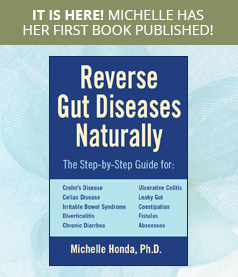

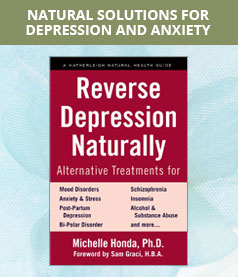
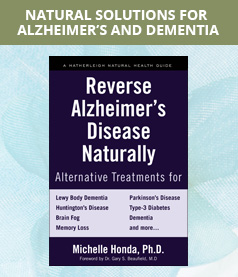
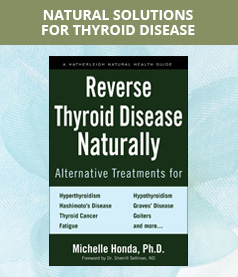

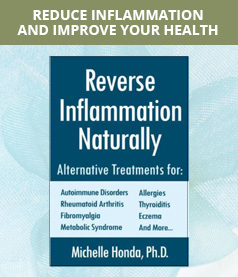
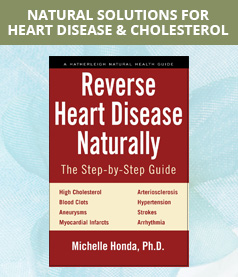
Follow Us!